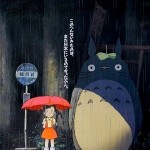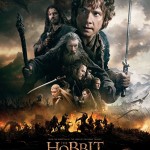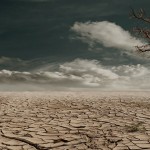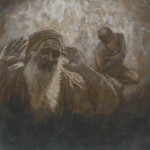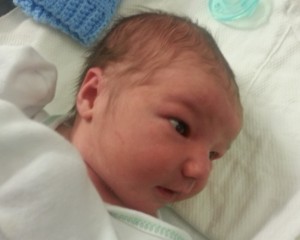 I awoke the other night to the cries of our newborn son. Groggily sitting up, I half crawled, half oozed out of bed, took the fussy boy from my wife, and gently placed him down on the end of the bed to change his diaper. With only the nightlight to guide me, I removed the soaked cloth diaper and reached among the shadows for a clean one. I yawned and then felt warm liquid streaming onto my face.
I awoke the other night to the cries of our newborn son. Groggily sitting up, I half crawled, half oozed out of bed, took the fussy boy from my wife, and gently placed him down on the end of the bed to change his diaper. With only the nightlight to guide me, I removed the soaked cloth diaper and reached among the shadows for a clean one. I yawned and then felt warm liquid streaming onto my face.
It took me a few seconds to realize that my son was urinating on my eyes, nose, and mouth. For a moment I thought maybe I was back online arguing with rude strangers, but the continuous flow of smelly infant pee brought me to my senses, sort of, and I blocked the flow with my palm. After cleaning up the mess, my face included, I smiled and held the boy close. He was calm now, but very awake, his big bright eyes shining in the bedroom’s little light. The clock said 2:00 am.
Rowan is our fourth-born child. He came home to meet his brother and sister shortly before this past Christmas. With the birth of each baby, I’ve been struck by their complete dependency on us. They can do next to nothing for themselves. With our firstborn, this radical dependency, and the responsibility of ours that came with it, frightened the confidence out of me. I didn’t want to leave the hospital and its trained nursing staff. I’m more used to it all now. It’s less stressful, but no less startling.
Holding a newborn reminds me that none of us ever really escapes this radical dependency. Sure, we mature and assume a degree of independence and self-reliance, and it’s important that we do so. My three-year-old should be able to put away her toys, clean up her messes, and pick out her bedtime books. Her older brother should be able to collect heart containers, obtain the Master Sword, and find and defeat Ganon without my having to tell him where to go and what to do. Dependency can be unhealthy and stifling, but so too can the thought that we are basically independent and reliant on no one.
The rugged, autonomous individual is a favorite figure in American mythology. It’s also largely a lie. Deprived of every support and left entirely to our own abilities, most of us would perish just as surely as an infant exposed to the elements would. We’re able to provide for ourselves only because we do so within various communities and their basic social structures. We work and exchange goods reliant on, among other things, a means of communication–you know, language–and a political system that establishes what belongs to us. More basic still, we owe our life and health to the natural environment.
According to orthodox Christian theology, all of us are dependent on God for our very being. God made us and sustains us in our existence. At the most fundamental levels, we are dependent creatures. Independence and autonomy have their place, but they’re not true ethical ideals. Adulthood, I would suggest, has less to do with becoming self-reliant than it does with becoming responsible–for oneself and for others. As an infant’s dependency calls for the generous responsibility of her parents, so our own shared dependency calls us to shared responsibility.
What if, instead of glorifying the autonomous individual and demeaning the poor and dependent, we recognized everyone’s radical dependency and celebrated responsibility and generosity, placing them as best we could at the heart of our society? We expect as much within our families and our churches, so why not also within our neighborhoods and our nation?

